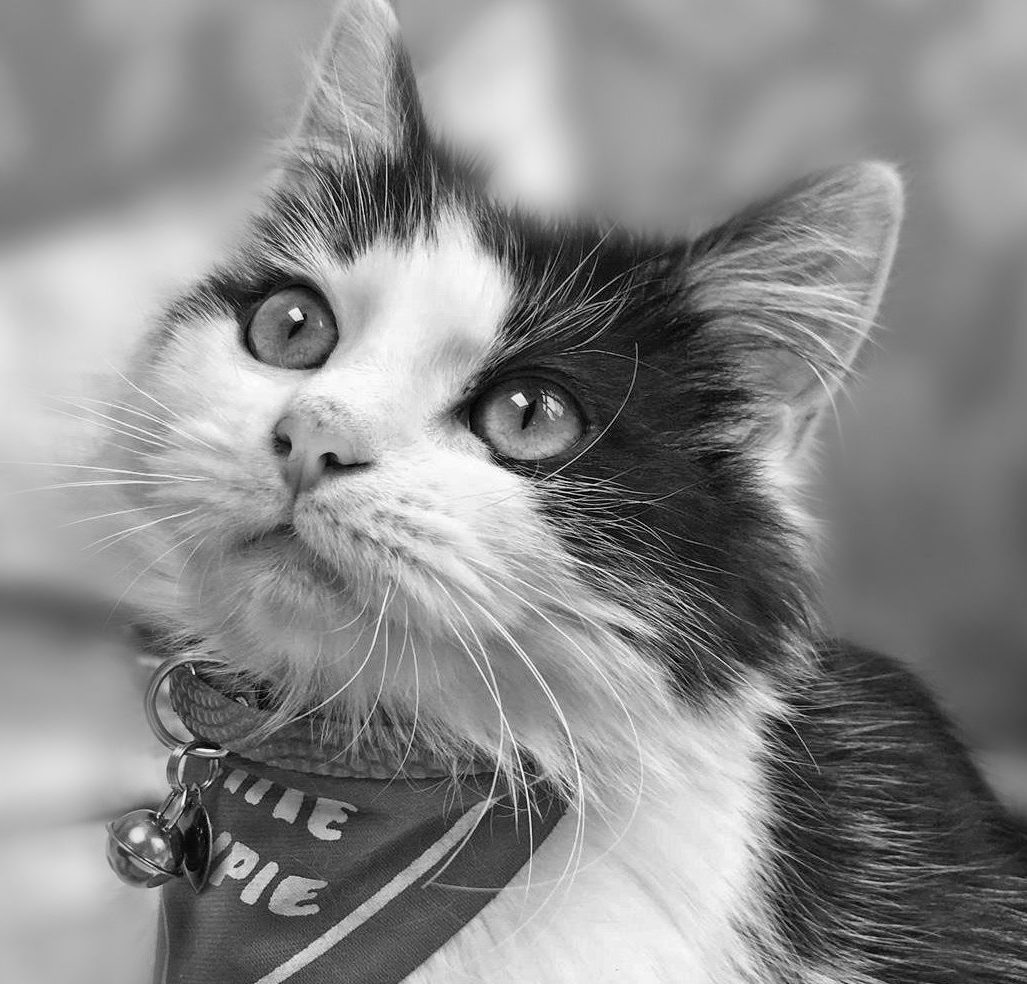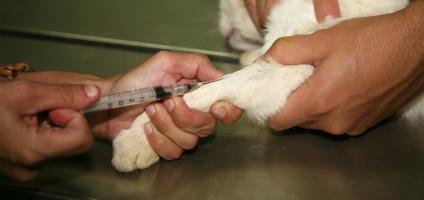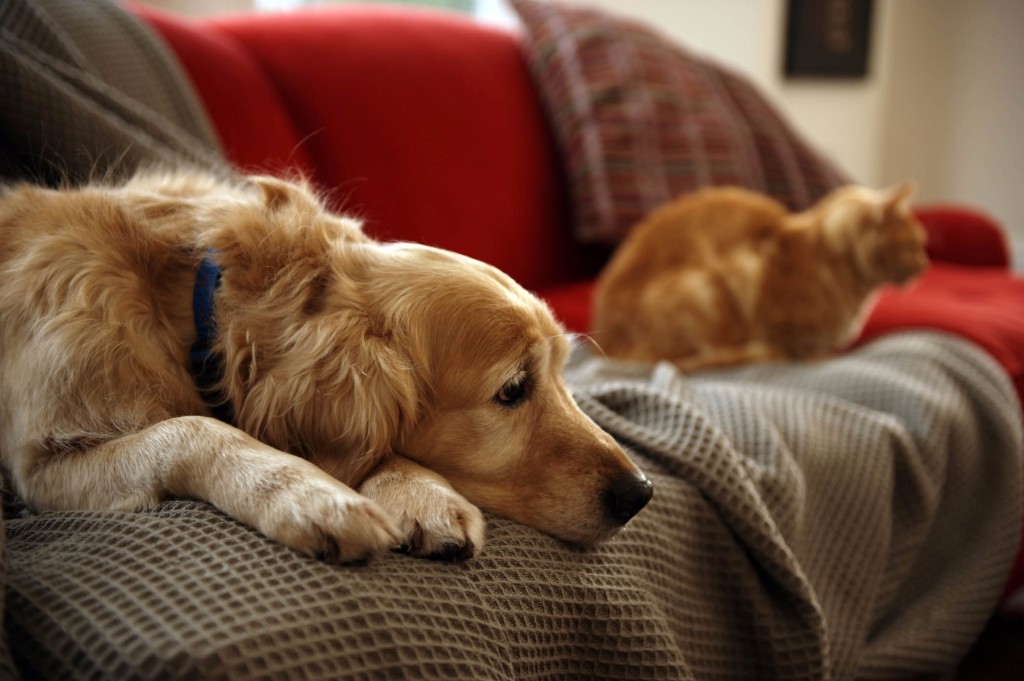What even is an unnecessary test…..?
So, one of the things that seems to upset the public most about going to the Vets is the unnecessary testing that they feel comes with a vet consult.
I like to think that actually very little unnecessary testing happens in general practice and certainly in the practice I work in. Now, it would be easy to say that the general public is wrong and to blame for the vicious rumours about the scores of ‘unnecessary’ tests that are going on all across the country. However, I think some of the blame must be shouldered by vets who simply do not explain well enough the reasons for their actions. I have definitely been guilty of this.
 The problem with veterinary medicine is that quite obviously, we cannot ask the patient what is wrong. We can’t ask your cat how she feels, or ask your puppy how many ibuprofen he ate and at what time.
The problem with veterinary medicine is that quite obviously, we cannot ask the patient what is wrong. We can’t ask your cat how she feels, or ask your puppy how many ibuprofen he ate and at what time.
Veterinary Medicine works somewhat on the basis of probability. Your vets brain works a bit like a computer, sometimes functioning at Windows 98, but mostly at MacBook Pro speed. We are statisticians, educated in balancing probability, prediciting likely outcomes. We take in all the information you give us and we add it to the information gained from our clinical exam and we search through 5 years of veterinary training and several years of experience to compute the most likely cause of your pets illness or injury. We usually come up with several lists in our head, its individual to each vet, but mine looks something like this:
- What is most likely to be the cause: …….
- What is less likely to be the cause: ……
- Things that could cause serious problems / death: …..
Now, this is when we give you some information. This is usually something along these lines…
“It is MOST likely we are dealing with a simple urine infection that can be treated by antibiotics. However, it could also be X, Y or Z. We can either treat for a urine infection and see what happens OR we could do some further tests to try and work out the cause of Rovers problems”
What we do next is entirely up to YOU as an owner. It all depends on how sick you think Rover is, whether you are going to worry all night in case it could be X instead, sometimes whether he is insured, or whether you are going on holiday in a weeks time.
If we think Rover is really sick or if we really don’t know what is going on, we will tell you that and you may then feel pushed towards doing further tests. Its still up to YOU whether you decide to go ahead. Just remember, if you decide not to go ahead you run the risk that our presumed diagnosis and treatment is not correct or that Rover might get worse … its a calculated risk… but it is a risk.
Unfortunately, without further tests your vet can only tell you what is MOST LIKELY to be the cause NOT what is the cause of Rovers illness. Sometimes, even with tests we cannot say for sure what wrong, but we can say with greater certainty. We can also rule out other more serious causes. Some diseases we suspect we cannot treat without further testing, we would risk making the situation worse. It would be like trying to fix a broken leg without x-rays of the break.
Unfortunately, without further tests your vet can only tell you what is MOST LIKELY to be the cause NOT what is the cause of Rovers illness.
That being said, its time to explain a bit more about why this is all so complicated.
Lets imagine your cat has vomited a few times this afternoon, he is off his food, a bit lethargic and is drinking more. If you are anything like me, you are probably thinking that your cat is occasionally sick, so it’s no big deal. You’ll will just wait and see if he is better by tomorrow, he probably ate something funny in the garden. If he’s not better by tomorrow you will dig out the dreaded cat basket and commence world war 3 in an attempt to put your cat in a box.
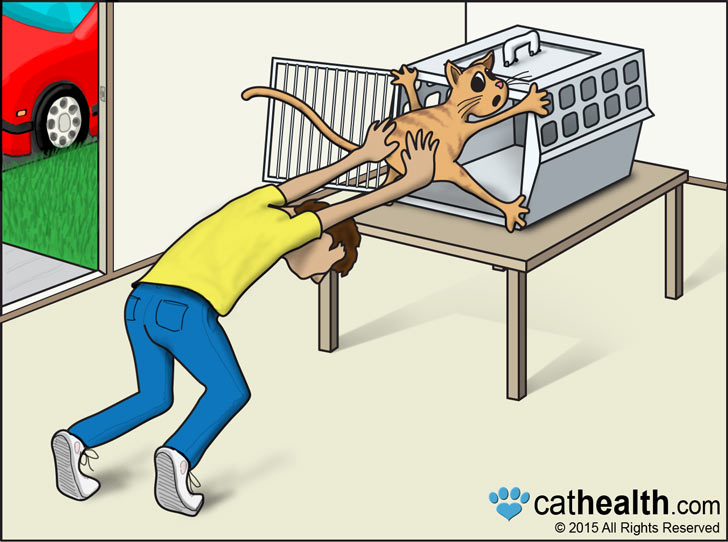
The next morning he is no better so you go to the vet, and they might suggest doing a blood sample and maybe a urine sample – seems a bit excessive? You have probably googled ‘vomiting cat’ already, and the top answer probably says your cat has a stomach bug that will get better with antibiotics. It PROBABLY does, and it PROBABLY will.
However, it could also have dozens of other conditions that could be a lot more serious.

Some conditions are fairly easy to spot, if he had eaten Antifreeze he would be rapidly deteriorating at a speed of knots. A lot of these conditions, especially in the early stages, can present in a similar way to your cat, and he could have any of them.
I think if I had the time to draw a diagram like this every time i see a sick animal, owners would be a lot keener to undergo further testing. Ignorance is sometimes bliss. If i explained this better would clients complain less… probably.
Unfortunately, the above cat had chronic renal failure – diagnosed on blood and urine tests. The majority of cats I see who present like this have gastritis /gastroenteritis…. they get better with a course of antibiotics.
Example number 2: an older dog which has gotten a bit skinny over the last few months. 
He drinks a lot and urinates in the house … but ‘he is getting old now’. I can’t find anything wrong with him on clinical exam but he is very thirsty when I offer him water.
Something, doesn’t seem right here, so I offer a complete blood test to give me the most information. I think he has cancer. The owners oblige, a little bit concerned about the price of his complete blood profile – its almost £100.
The bloods are normal. I question myself, was the test unnecessary? But I know that dogs don’t just ‘get old’. No dog has ever died from being ‘old’ – they get disease. I offer a urine test – the owners are a little perturbed, they are starting to think he’s just getting old and they should take him home. But I am not convinved – there could still be a problem here.
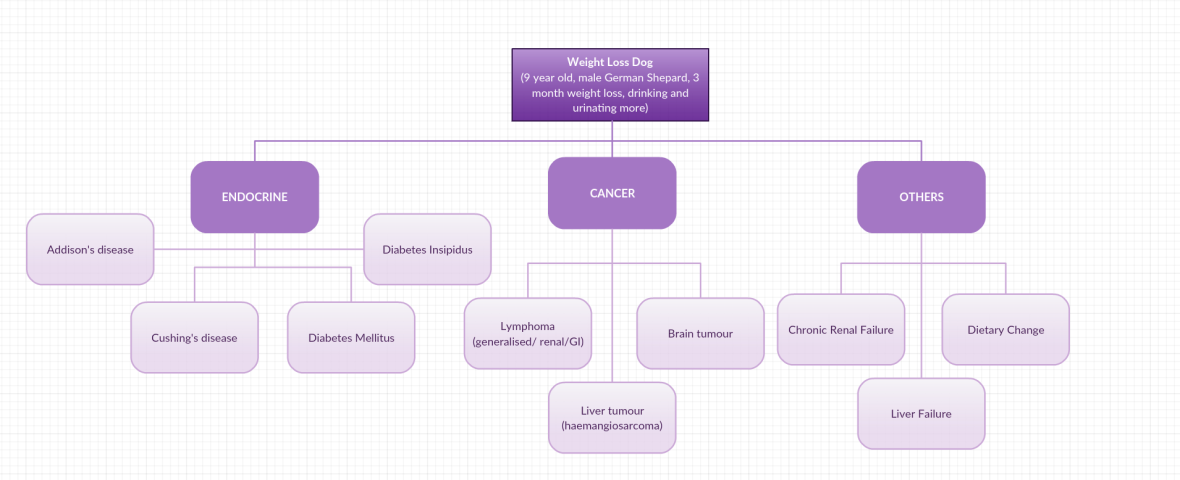
Urine tests show his urine is incredibly diluted – thats why he is drinking so much. The test gave me more information but it didn’t solve the problem. Thats £140 gone and i can tell his owners he drinks more because he is urinating more – sounds like a waste on money to me.
To cut a long story short, the dog had diabetes insidious diagnosed eventually on some specialised and expensive blood tests based on the findings of his initial blood and urine test. It’s a pretty rare condition with most practitioners seeing it once or twice during their career. Leaving it undiagnosed would have eventually lead to dehydration, coma and death. He is now on treatment for life, he is a new dog and eats his owners out of house on home.
I’m not telling you this story to prove I’m a good vet… almost the opposite… I was sure he had cancer. This dogs owners persevered, they trusted their instincts, as well as mine and my opinion. After a few negative (unnecessary?) tests they could have given up, they could have requested a new vet, or complained on Facebook to their friends – but they didn’t.
So, this extremely long post has finally got to its punchline. Most tests aren’t unnecessary.
If you are thinking they are, maybe your vet should have explained the situation better – ask your vet some questions, ask them why they think bloods might be a good idea. If they can’t tell you then the test is unnecessary. If the tests come back as normal … this is GREAT NEWS…. Rover isn’t dying from acute kidney failure. We can both stop worrying about X, Y & Z, I can be confident in my treatment choice and you can go home with antibiotics safe in the knowledge that Rover will definitely get better!
Whats unnecessary about that?
***My blog is limited exclusively to my own thoughts and opinions and does not reflect those of anyone else or my employers***
